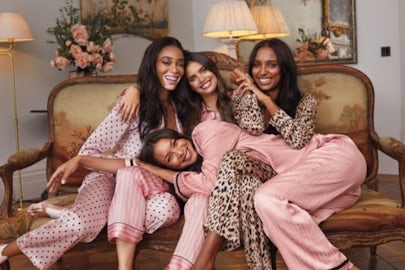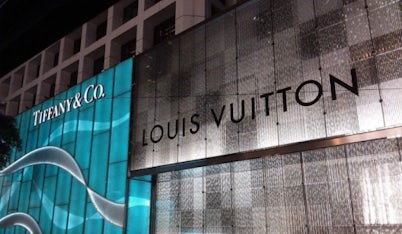The Fate of New York Fashion Week | BoF Professional, The Week Ahead
THE CHEAT SHEET
Decision Time for American Designers

Michael Kors is among the major American brands that won’t be showing in New York in September | Source: INDIGITAL.TV
- A condensed New York Fashion Week is scheduled to run from Sept 14-16
- Most major designers are not showing, and many who remain on the schedule are expected to produce digital content
- Outside the US, fashion weeks are regaining their footing after an uneven, mostly digital summer; Milan will feature 28 physical shows
The impact of America’s failure to contain the coronavirus is clear when fashion week plans for New York and Milan are considered side by side. In Italy, 28 designers will stage physical shows, including heavy hitters like Fendi and Prada. In New York, most major brands plan to skip the week entirely, and no designer has announced a show that will take place in front of a live audience (some physical elements are likely; the state said last week that “cultural institutions” could open with limited capacity, though it has yet to weigh in on NYFW specifically). Designers who in past years would have locked down their sponsors and show plans in late spring are still working out what to do.
None of this would matter in the long run if New York Fashion Week wasn’t already facing real questions about its utility, even before the pandemic. Recent American success stories, from Everlane to Supreme, never bothered with wholesale, fashion magazines and runway shows to begin with. Now, with the US wholesale retail system in chaos and layoffs thinning the ranks of editors, designers may have even less reason to stage elaborate runway shows and presentations.
The Bottom Line: Whether the thin, largely virtual September schedule marks a temporary disruption or a sea change will be determined in the weeks and months ahead, as brands evaluate whether skipping fashion week had a material effect on their business and public perception. If designers discover they can skip a season without losing sales or exposure, they will have less incentive to return to the schedule in February or September 2021.
Victoria’s Secret Long, Slow Recovery

A 2019 Victoria’s Secret advertising campaign | Source: Courtesy
- Victoria’s Secret and Bath & Body Works owner L Brands reports second-quarter results on Aug. 19
- The company announced layoffs and a sharp decline in sales in July; it plans to split its brands into two companies
- Investors are optimistic about recent changes, driving shares to a one-year high
You know times are tough when a 40 percent year-on-year drop in revenue is considered good news. Victoria’s Secret’s pre-announcement of its second-quarter revenue was better than many analysts had expected, and perhaps a sign that the brand is slowly clawing its way back from the deep hole it has dug itself into over the last few years. The brand is purging the last vestiges of its over-the-top “sexy” branding, with more diverse models and sizing front and centre. It’s undergoing the same process at the corporate level, where parent L Brands is taking steps to split Victoria’s Secret and Bath & Body Works into independent companies. Leslie Wexner, who was recently back in the news after being subpoenaed by Alan Dershowitz over his alleged ties to Jeffrey Epstein, presumably will have little role at either brand.
Any recovery is complicated by the troubled state of brick-and-mortar retail. Victoria’s Secret still operates hundreds of stores, many in enclosed malls that have been slow to recover as the pandemic drags on. The brand is also engaged in a legal battle over millions of dollars in unpaid rent at its still-closed New York flagship. L Brands is closing 250 Victoria’s Secret stores, and has $2.5 billion in cash (plus the ability to borrow an additional $1 billion) to serve as a cushion while it executes its turnaround.
The Bottom Line: Despite Victoria’s Secret’s many, well-documented problems, in the current environment it’s still probably better to be a troubled behemoth with billions of dollars in the bank than an unprofitable digital lingerie start-up.
A Busy Month for Deals Rolls On

LVMH is expected to complete its acquisition of Tiffany & Co. later this year | Shutterstock
- LVMH is awaiting final approval from regulators in several countries to complete its $16.2 billion acquisition of Tiffany & Co.
- Other major American retailers will also soon be in the hands of new owners via bankruptcy court, including Neiman Marcus, J.Crew and J.C. Penney
LVMH is known for playing the long game, but the process to acquire Tiffany, now entering its 10th month, is surely trying the conglomerate’s patience. In July, executives said they were waiting on the green light from regulators in half a dozen jurisdictions, including the European Commission, with no visibility on when that might come. Tiffany remains a prize: though sales have taken a hit, jewellery as a category has held up better than fashion during the pandemic, and the brand has seen success in China to counter a steep decline in sales to tourists visiting the US.
Even if regulators need more time to review the deal, odds are there will be news this week about at least one other major American retailer. The initial wave of pandemic-induced bankruptcies are entering their endgames. Neiman Marcus expects an early fall exit from bankruptcy after striking a deal with creditors to hand over part of MyTheresa, its successful luxury e-commerce site. J.Crew got a break from landlords on rent, but could face opposition on its restructuring plan from creditors this week who say the company’s value is higher than reported. J.C. Penney has the highest drama potential, as creditors have rejected bids from Sycamore Partners, Hudson’s Bay Co. and other potential acquirers as too low. The chain could be forced to liquidate if a deal isn’t reached.
The Bottom Line: LVMH is looking to build Tiffany into another of its superstar international brands. As for the other retailers on the block, it’s less clear whether new owners are interested in reviving what made these retailers great in the first place, or squeezing the last few drops out of dying brands.
SUNDAY READING
Professional Exclusives You May Have Missed:
The Week Ahead wants to hear from you! Send tips, suggestions, complaints and compliments to [email protected].
Was this BoF Professional email forwarded to you? Join BoF Professional to get access to the exclusive insight and analysis that keeps you ahead of the competition. Subscribe to BoF Professional here.



:quality(70)/cloudfront-eu-central-1.images.arcpublishing.com/businessoffashion/4W5SQFD52BBLDPSJBCGTSN5V6E.png)

